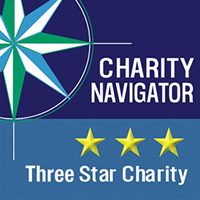Speech Generating Devices
Medicare Coverage of Speech Generating Devices
The Centers for Medicare and Medicaid Services (CMS) has issued a number of different policy changes regarding coverage for speech generating devices (SGDs) that have created some confusion and raised significant concerns within the ALS community. The ALS Association’s Public Policy Department has worked on these issues since they first arose and continues to advocate ensuring that people with ALS have access to communications devices that are so vital to living with this disease. The issues are summarized below and include what action The Association is taking and what people with ALS can do to help.
Latest Updates
Medicare recognizes speech-generating devices (SGDs) as Durable Medical Equipment (DME), which is a covered benefit for Medicare beneficiaries under the Social Security Act (Section 1861). On July 29, 2015, President Obama signed the Steve Gleason Act. The new law helps protects patient access to medically necessary Speech Generating Devices (SGDs) for individuals with communication disabilities, including ALS. Specifically, the new law will remove SGDs from the Medicare Durable Medical Equipment (DME) payment category as a “Capped Rental” and provide coverage of eye-tracking technology for patients who rely on this method to access and operate covered SGDs.
The passage of The Steve Gleason Act is a monumental step for Medicare patients who rely on assistive technology to communicate with their loved ones and caregivers. The reform serves as acknowledgement to the community of the equal importance of the right to be heard. The presidential signing also comes just a day after the Centers for Medicare and Medicaid Services (CMS) updated their coverage policy for speech generating devices.
The Centers for Medicare & Medicaid Services (CMS) issued changes to the SGD benefit in a Final Decision Memorandum, reflected here. The decisions outlined in the memorandum are effective immediately.
Medicare Definition of SGD
Effective July 29, 2015, the Medicare definition includes devices that:
•provide an individual the ability to meet their "functional, speaking needs"
•are primarily used for the purposes of generating speech
•include the capability to generate email, text or phone messages as "other covered features"
•include other non-covered features at the expense of the Medicare patient.
The definition excludes from Medicare coverage:
•a device that is useful to someone without a speech impairment
•personal computers, tablets or mobile devices that may be programmed to perform the samefunctions, but do not meet the definition of DME
•internet or phone services, or any modifications to the patient's home
•specific features not related to "functional speaking", such as hardware or software used to createdocuments or play games
•video communications or conferencing software.
*The excluded features can be added to the SGD at the patient's expense.
DME is defined by Medicare as "reusable" medical equipment and is covered under Medicare Part B (outpatient) services when it is necessary for use in the home (or facility that is used as a home, such as a long-term care facility). SGDs required in inpatient facilities (skilled nursing facilities, inpatient hospitals) are the responsibility of the facility.
Continued Efforts
While we have made important progress in rescinding the coverage reminder, it is clear that more must be done. Thanks to your efforts, including helping to urge 200 Members of Congress to join our fight, we have made a difference. We are confident that through your continued advocacy, we will succeed and ensure people with ALS have access to the SGD technologies they need when they need them.
If you have any questions about these issues or would like additional information, please contact the Public Policy Department at advocacy@alsa-national.org.

